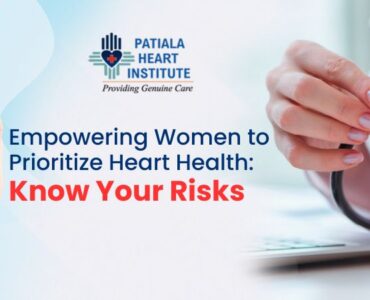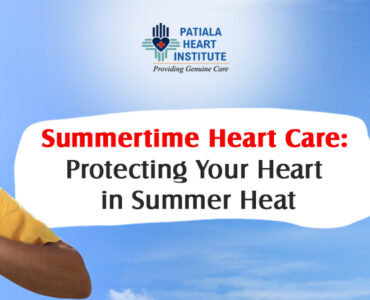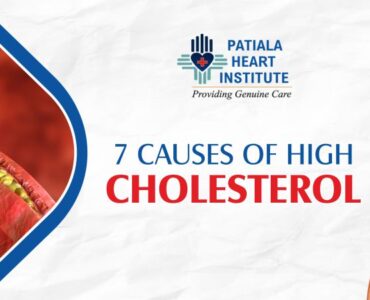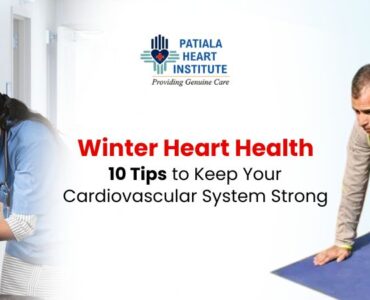The rising frequency of heat waves poses a significant threat to public health. As temperatures soar, the impact on our bodies, particularly our cardiovascular systems, becomes a pressing concern. Understanding how extreme temperatures affect heart health is crucial for safeguarding our well-being during these increasingly common climate events.
Heat waves, characterized by prolonged periods of excessively high temperatures, strain our bodies’ ability to regulate heat. This strain can exacerbate health conditions, particularly those related to the heart and blood vessels. We can better prepare and protect ourselves and our communities by exploring the relationship between heat waves and heart conditions.
This blog will explore heat waves’ nature, causes, and physiological effects on the body. We’ll also examine how heat waves and heart health are impacted, identify vulnerable populations, and discuss preventive measures and public health strategies to mitigate these risks.
Understanding Heatwaves
A heatwave is an extended period of abnormally high temperatures, often combined with high humidity, which can pose serious health risks. The specific temperature thresholds and duration required to classify a heatwave vary by region. Still, generally, temperatures must be significantly above the average for that area and sustained for several days.
Recent examples of significant heatwaves include:
- North India has seen temperatures soar close to 50 degrees Celsius (122 degrees Fahrenheit) during one of the longest heatwave spells on record. (Source: The Economic Times)
- Extreme heat in India has killed more than 100 people in the past three and a half months. (Source: AP News)
- India reports over 40000 suspected heatstroke cases over the summer. (Source: Reuters)
Physiological Effects of Heat on the Body
Mechanisms of Thermoregulation
The human body maintains its internal temperature through a process called thermoregulation. When exposed to heat, the hypothalamus, a part of the brain that acts as the body’s thermostat, triggers various physiological responses to cool down. Blood vessels near the skin’s surface dilate, a process known as vasodilation, allowing more blood to flow and release heat. This is why your skin often appears redder in hot conditions.
Sweating and Its Impact on Hydration
Sweating is another critical cooling mechanism. As sweat evaporates from the skin, it carries heat away from the body, effectively cooling it down. However, this process also leads to significant fluid loss. If not replenished, this can result in dehydration, which impairs the body’s ability to regulate temperature further. Dehydration can thicken the blood, making it harder for the heart to pump, increasing the risk of heat-related illnesses and cardiovascular strain.
Impact of Heatwaves on Cardiovascular Health
How Heat Increases the Heart’s Workload?
During heat waves, the heart pumps blood to the skin’s surface to dissipate heat. This increased cardiac workload can be particularly taxing for individuals with preexisting heart conditions. The body’s demand for oxygen rises, and the heart must beat faster and harder to meet this need, exacerbating cardiovascular issues.
The Role of Dehydration in Cardiovascular Strain
Dehydration, common during heatwaves, thickens the blood, making it more difficult for the heart to circulate. This increased viscosity requires the heart to exert more effort, further straining the cardiovascular system. Additionally, electrolyte imbalances caused by excessive sweating can affect heart function and increase the risk of arrhythmias.
Risk of Heart Attack and Stroke
Statistics on Heatwaves and Increased Incidence of Heatwaves Heart Attack Risk
According to a BBC article, heatwaves killed more than 25,000 people in India between 1992 and 2019, but experts believe the actual number is much higher because India doesn’t properly compile mortality data.
Biological Explanations for the Increased Risk
Extreme heat can destabilize plaque in the arteries, increasing the risk of heart attacks. Dehydration reduces blood volume, leading to hypotension and decreased blood flow to the heart and brain. These conditions can trigger myocardial infarctions (heart attacks) and cerebrovascular accidents (strokes). Additionally, the strain on the heart can precipitate heart failure in vulnerable individuals.
Vulnerable Populations
Elderly individuals often have a diminished ability to regulate body temperature and may have underlying health conditions that exacerbate the effects of heat. Their hearts may not respond as efficiently to increased workload demands, and they may be less aware of or able to respond to early symptoms of heat stress.
People with preexisting heart conditions, such as hypertension, coronary artery disease, or heart failure, are also at greater risk. Their cardiovascular systems are already compromised, making them less able to cope with the additional strain imposed by extreme heat and dehydration.
Impact on Athletes and Outdoor Workers
Athletes and outdoor workers are frequently exposed to high temperatures, making them susceptible to heat-related illnesses. The physical exertion combined with high temperatures increases the risk of dehydration and heat stress. Even fit and healthy individuals can suffer from heat exhaustion or heatstroke if they do not take adequate precautions.
Preventive Measures and Mitigation Strategies
Proper hydration is crucial during heatwaves to support the body’s natural cooling mechanisms. Water helps regulate body temperature, supports cardiovascular function, and prevents dehydration. It’s essential to drink plenty of fluids, even if you don’t feel thirsty, as thirst is not always an accurate indicator of hydration status.
Signs of Dehydration to Watch Out For
Recognizing the early signs of dehydration can prevent more severe heat-related illnesses. Common symptoms include:
- Dry mouth and swollen tongue
- Weakness and dizziness
- Dark urine and decreased urine output
- Fatigue and confusion
- Headaches and muscle cramps
If you experience any of these symptoms, increase your fluid intake immediately and seek a cooler environment.
Avoiding Extreme Heat
Avoiding prolonged exposure to extreme heat is vital for maintaining heart health. Here are some practical tips to stay cool:
- Stay Indoors: Remain in air-conditioned buildings as much as possible. If you don’t have air conditioning at home, spend time in public places like shopping malls or libraries.
- Use Fans and Coolers: Electric fans, ice packs, and cooling towels can help reduce body temperature.
- Limit Physical Activity: Avoid strenuous activities during the hottest parts of the day, typically between 10 AM and 4 PM.
- Wear Lightweight Clothing: Light-colored, loose-fitting clothing helps the body regulate temperature more effectively.
- Cool Showers: Taking cool showers or baths can lower body temperature quickly.
Recognizing Symptoms Early
Heatwaves can exacerbate cardiovascular problems, so it is essential to recognize the symptoms early. Look out for:
- Increased heart rate and palpitations
- Chest pain or discomfort
- Shortness of breath
- Lightheadedness or fainting
- Extreme fatigue and confusion
When to Seek Medical Help?
Seek immediate medical attention if you or someone else experiences severe symptoms such as chest pain, difficulty breathing, or fainting. These could be signs of heatstroke or a cardiovascular emergency. Prompt medical intervention can prevent serious health complications or death.
Conclusion
As we face increasingly frequent and intense heat waves, it’s essential to prioritize our cardiovascular health. Stay informed, stay hydrated, and take proactive measures to protect yourself and your loved ones from the risks of extreme heat.
Protect Your Heart Health with Patiala Heart Institute
Extreme heat can cause heart risks. So, if you or your loved ones are facing heart-related issues, especially during heatwaves, visit Patiala Heart Institute, the leading heart hospital in Patiala. Our expert cardiologists in Patiala are dedicated to providing the best care and treatment to ensure your heart health is in top condition. Trust the best cardiologist in Patiala to help you stay safe and healthy during extreme heat conditions. Schedule your consultation today and safeguard your heart against the risks of extreme temperatures.







